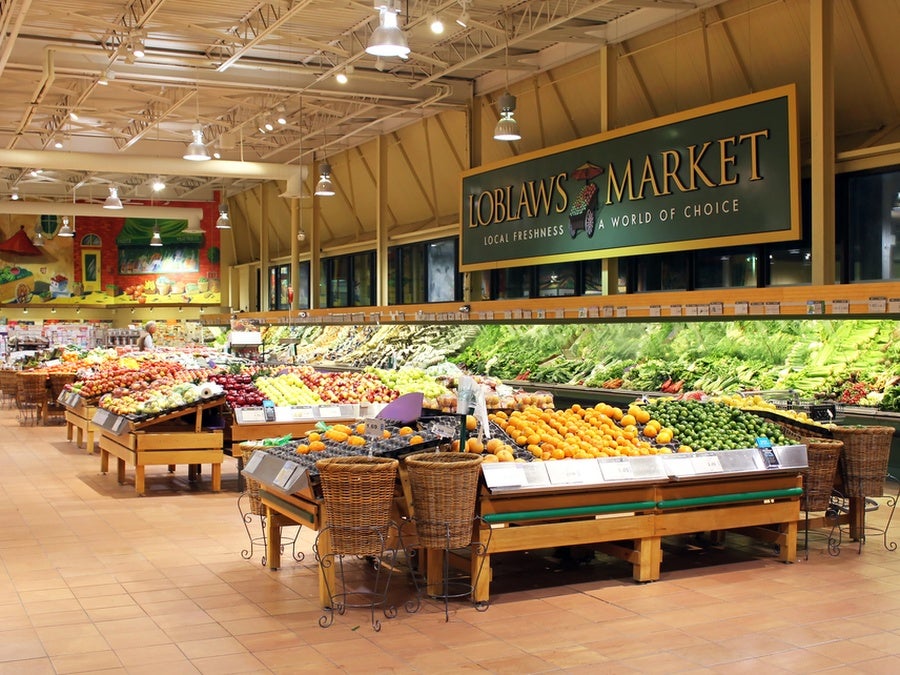
Canada’s competition watchdog has called for increased competition in the country’s grocery market and suggested this could help to tame inflation.
The Competition Bureau’s Retail Grocery Market Study Report, published yesterday (27 June), urged the country’s government to implement policies to support independent grocers.
It pointed out that in 2022 Canada’s three largest grocers – Loblaws, Sobeys, and Metro – collectively reported more than CAD100bn ($75.6bn) in sales and earned more than CAD3.6bn.
They have been accused of keeping prices artificially high. Canada’s general inflation rate in May was 3.6% but grocery inflation was more than double that at 8.9%.
In its report, which it has been working on since October, the Competition Bureau said: “The price Canadians pay for groceries has been rising fast. Factors such as higher input costs, Russia’s invasion of Ukraine, and supply chain disruptions have contributed to recent increases in the price of food. But we have also seen a longer-term trend that pre-dates those events, of Canada’s largest grocers increasing the amount they make on food sales.”
It added: “Canada needs solutions to help bring grocery prices in check. More competition is a key part of the answer.”
But the Competition Bureau admitted the Canadian grocery industry is tough to enter.
“Canada is a big country and opening new grocery stores is expensive and difficult. The industry’s big players operate thousands of stores and are well entrenched in the shopping habits of Canadians,” it said.
“In recent years, industry concentration has increased, and it has become more difficult than ever for businesses to enter, expand, and compete effectively.”
The watchdog recommended the establishment of “a Grocery Innovation Strategy aimed at supporting the emergence of new types of grocery businesses and expanding consumer choice”.
It added: “Competitive markets empower consumers and drive businesses to lower prices, improve product quality, innovate, and bring valuable new products to market.”
It also suggested provincial and territorial governments should consider introducing “accessible and harmonised unit pricing requirements”. It said: “It is difficult to compare prices on even a few items between different grocery stores. Canadians need tools to help them compare grocery prices and empower them to make informed purchasing decisions.”
It also recommended that provincial and territorial governments should take measures to limit property controls in the grocery industry, which could include banning their use.
“Property controls limit how real estate can be used by competing grocers. They make it difficult, or even impossible, for new grocery stores to open, which reduces competition in communities,” it said.
Its final recommendation, which seems to address price-gouging allegations, is that there should be “heightened vigilance and scrutiny”.
It said: “We need to thoroughly and quickly investigate allegations of wrong-doing, and we need the power to act when issues arise.”
However, Dr, Sylvain Charlebois, from the Agri-Food Analytics Lab at Dalhousie University, who is one of Canada’s best-known grocery industry commentators, thinks the report could have gone further in this area.
He said: “The existence of an apparent price-fixing culture poses a challenge for the Competition Bureau. While the study sheds light on various aspects, it is important to acknowledge that it does not directly address this critical issue.”
Trade body Retail Council of Canada argued the report was “deficient in some important areas”. It said the report did not focus on food specifically and “overlooks that food margins are stable and that Canada’s food inflation is the second lowest in the world”.
The association added: “Most increases come from pharma, health, and beauty as well as operating efficiencies. Food margins are either flat or down. The fact remains that grocery prices have gone up because of a confluence of global factors affecting grocery inputs: war, extreme weather, and soaring fuel prices, all piling on top of supply chain disruptions and labour shortages.
“And so, the conclusion that we draw from the Report is something of a paradox: more competition could result in lower prices, but foreign grocers aren’t raising their hands to enter our market because Canadian grocers already compete fiercely on price.”
